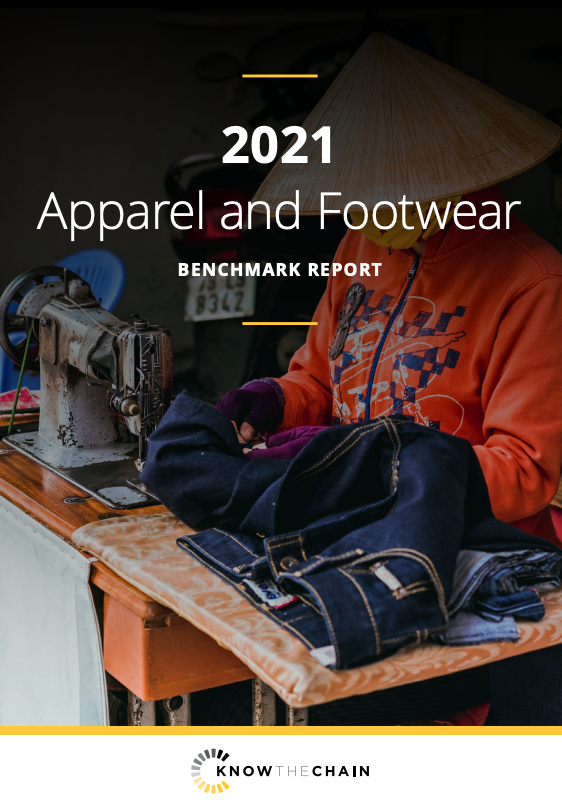Workers in apparel supply chains are among the hardest hit by the Covid-19 pandemic. Even before the pandemic, workers had to survive on poverty wages; in the first three months of the pandemic alone, workers lost at least US$3 billion in income. Poverty, discrimination, a lack of labor protections, and restrictions on movement form the breeding ground for exploitation and forced labor risks — and the Covid-19 pandemic has dramatically worsened these factors. Workers’ already meager livelihoods were taken away and many lack the support of social and labor protections, which do not extend to (undocumented) migrant workers.
How have apparel companies, which despite ultimately profiting during the pandemic, responded to increased risks of forced labor? KnowTheChain’s third apparel and footwear sector ranking found that the 37 largest global companies fail to stand up for workers who face exploitation and are struggling to survive. On average, companies fail even to hit the 50% mark in the benchmark when it comes to addressing the worst forms of exploitation in their supply chains. Luxury apparel companies score particularly poorly, averaging 31/100. Italian luxury fashion house Prada’s score has worsened over time, at just 5/100, while peers such as the French luxury goods company Kering (41/100) and the German upper premium brand Hugo Boss (49/100) have improved significantly since the first benchmark in 2016. Also among the bottom five companies is US-based Tapestry (16/100),the owner of Coach and Kate Spade. The poor performance suggests a lack of will rather than a lack of resources: Prada offered US$100 million in dividends to its shareholders in early 2021 and Tapestry’s gross profits for the last quarter of 2020 alone equaled US $1.17 billion.

